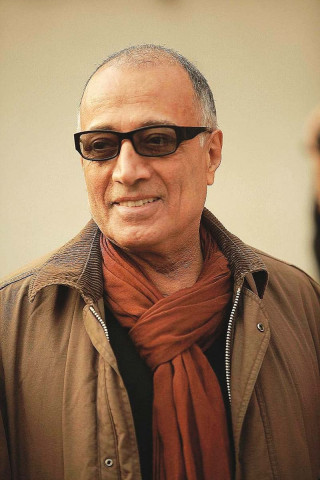As he lies in his grave, waiting to be buried
Pakistani artists share thoughts as Iranian film-maker Abbas Kiarostami’s demise leaves a void in the world of...

Kiarostami has to his credit over 40 contributions to cinema, including movies, feature films and documentaries. PHOTO: FILE
Film-makers around the world mourn the loss of an iconic voice — a voice so truly unique that it can never be silenced. Kiarostami made waves with films like the Koker trilogy (1987-94), Close-Up (1990) and Taste of Cherry (1997), solidifying his position as one of the greatest film-makers in the world.
Pakistani director and cinematographer Najaf Bilgrami shared his experience of running into Kiarostami in Abu Dhabi. “I actually met him at Abu Dhabi Film Festival back in 2009. He was the head of the jury for short documentries and my documentary Wagah won the award.” Bilgrami said Kiarostami wore blues and greys and was always seen wearing dark glasses. “He carried himself like a rockstar.” The Pakistani director also added that once he had seen him in a café surrounded by “a gang of Iranian filmmakers” but he couldn’t muster up the courage to go and talk to him.

“He was a really quiet person, and had a certain sense of authority about him. Even if you didn’t know him and he walked into the room, you would think he is someone important. But he never seemed to care about it. He didn’t use his power. I think it happens when you tell stories for a living.”
Kiarostami’s demise has left a huge gap in the film world. Bilgrami recognises his importance in world cinema, considering his honest approach to storytelling. “He was the kind of person who would question everything. He had a very brutally honest way of telling the stories. No nonsense narratives. I think he was quite existentialist in that way. For such filmmakers, it is true that the older they get, the better they become,” he added.
Iranian director Kiarostami dies in France at 76
Film-maker Jami is also inspired by Kiarostami’s work. “I thought I could handle (Stanley) Kubrick and (Federico) Fellini but after Taste of Cherry, Abbas made me realise how much I have to learn to be able to think and feel like him,” he told The Express Tribune.
Musician and film-maker Zeeshan Parwez shared how Kiarostami’s Taste of Cherry continues to mesmerise him to this day. “I have watched a few Kiarostami features Taste of Cherry was my introduction to Iranian cinema back in the day,” he recalled. “There were so many things about that feature that have stuck out: its minimalism, how Kiarostami never said anything about his characters and left us with one of the most undefined and anti-climactic movie endings in cinema history that is talked about to this day. Only through multiple viewings of the movie was I able to comprehend both the subtext and the symbolic imagery that it had to offer.”
Considered one of the greatest film-makers of all time by icons such as Akira Kurosawa, Jean-Luc Godard and Martin Scorsese, Kiarostami rose above socio-political obstacles thrown his way to create art like no one else.
Film producer Azaan Sami Khan, who is also the son of singer Adnan Sami Khan, said, “His name was one spoken very highly of in my household and he was somebody who fought against all odds to tell his stories. The death of any such person isn’t a death; he leaves behind an example of resilience that all of us film-makers must follow.”
As Kiarostami lies in his grave, waiting to be buried, he has one last dream: a camera crew pops up behind him, Mr Badii helps him up and hands him a cigarette as the sun sets. On the other side of the screen, while we continue to cherish the fruits of nature, we can’t help but notice that cherries no longer taste the same.
Published in The Express Tribune, July 6th, 2016.
Like Life & Style on Facebook, follow @ETLifeandStyle on Twitter for the latest in fashion, gossip and entertainment.



















COMMENTS
Comments are moderated and generally will be posted if they are on-topic and not abusive.
For more information, please see our Comments FAQ